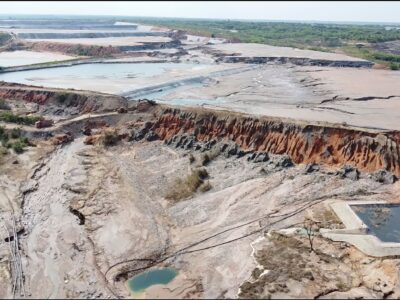Government has started teaching farmers the use of Bokashi organic manure, practiced in Japan as an alternative to chemical fertilizers, to promote smart agriculture in response to environmental sustainability.
Ministry of Agriculture Farm Management Officer for Lusaka District, Grace Chirwa, said farmers were encouraged to practice organic farming as an option to chemical fertilizers.
Chirwa said this in Kafue District on Saturday during the Climate Change Training workshop organised by Centre for Environment Justice (CEJ).
She disclosed that government had in the last two weeks trained farmers through existing cooperatives to make ‘Bokashi’, a Japanese term which means fermentation.
“Bokashi is made using available materials like grass, leaves, some ash and anthill soil. It is good because it gets ready for use within two weeks as compared to the ordinary compost manure which takes two to four months to be used,” she said.
She stated that government was hopeful that the use of Bokashi would help farmers to be more sustainable in practising smart agriculture.
Chirwa said the government had stepped up efforts to promote smart agriculture despite low adoption levels, adding that the Government will not give up.
“The government has been encouraging farmers to plant early maturing varieties because the weather pattern has changed,” she stated.
Chirwa said farmers were being taught on water conservation by practising drip irrigation to avoid wastage of water.
“Government is encouraging farmers to diversify crops in the wake of Climate Change by growing drought tolerant crops such as cassava, millet and sorghum,” she said.
Meanwhile, CEJ Head of Research and Studies, Freeman Mubanga, said agriculture was one of the highly impacted sectors by climate change.
Mubanga explained that this is why CEJ is implementing a project dubbed “Strengthening Civil Society Voices for Climate Advocacy in Zambia”, funded by United Nations Democracy Fund (UNDEF), covering five districts.
He named the districts as Lusaka, Chirundu, Luangwa, Chongwe and Rufunsa, to explain Zambia’s National Adaptation Planning (NAP) processes and Nationally Determined Contribution (NDCs).
“The success of Zambia’s National Adaptation Planning (NAP) processes and Nationally Determined Contribution (NDCs) implementation in the country hinges on the participation of several stakeholders including the Civil society movement,” Mubanga said.
WARNING! All rights reserved. This material, and other digital content on this website, may not be reproduced, published, broadcast, rewritten or redistributed in whole or in part without prior express permission from ZAMBIA MONITOR.












Comments